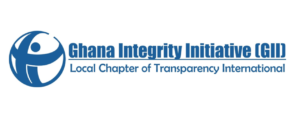Independent observers key in reducing abuse of incumbency – GII
 Mrs Mary Awelana Addah, the Programmes Manager of Ghana Integrity Initiative (GII), said monitoring and documentation of abuse of incumbency for publication by an independent body would ensure legitimate use of public resources.
Mrs Mary Awelana Addah, the Programmes Manager of Ghana Integrity Initiative (GII), said monitoring and documentation of abuse of incumbency for publication by an independent body would ensure legitimate use of public resources.
She said incumbent public office holders abused their incumbency mostly because of their parochial interest to retain power at the detriment of national resources.
That phenomenon created an inherent incentive for them to abuse public resources, even to the extent of influencing the outcome of elections.
Mrs Addah said this at the closing ceremony of a two-day training workshop for 32 media practitioners in Accra sponsored by Global Affairs Canada.
The project seeks to enhance the skills of the participants to facilitate the GII’s national monitoring exercise on ‘Abuse of Incumbency and Electoral Corruption before and during the 2020 Presidential and Parliamentary Elections’.
The exercise will track potential incumbent abuse of state resources and monitor the extent and variety of corruption in the 2020 elections.
It would also help promote the creation of a level playing field as a result of the monitoring and publicity exercises and contribute to achieving fairness and clean elections, Mrs Addah said.
Even though Ghana had witnessed seven elections with three successful transfers of power from one political party to the other, issues of abuse of power and corruption among public officers still existed hence the importance of the exercise to make office holders accountable, she said.
Mrs Addah said the role of an independent observer was key in enhancing transparency and increasing public confidence in the electoral process.
Article 55 (11) of the 1992 Constitution provides that the state makes the effort to ensure that all political parties have equal access to state media to present their plans and programmes to the populace.
Mr Francis Ameyibor, Executive Director, Communication for Development and Advocacy Consult, entreated journalists not to allow their personal opinions and preferences to influence their reportage during elections.
He said journalists must avoid wearing distinctive signs to indicate either a party or candidate affiliation.
Mr Ameyibor said journalists had a role to play in monitoring elections to ensure transparency in the voting process and, therefore, implored them to respect the electoral laws, rules and regulations whilst monitoring electoral activities.
He urged them to refrain from publishing information that encouraged division and aggressive discussions to incite violence and endanger social cohesion.
Mr Michael Boadi, the Fund Raising Manager, GII, advised journalists to be professional in the discharge of their duties in the impending elections.
He was optimistic that the participants were equipped with the necessary skills to collate and document corruption and incidences of abuse of incumbency.
Participants were taken through the General Overview of Ghana’s Election and Impact; Overview of Monitoring Abuse of Incumbency and Electoral Corruption; and Legal Framework for Elections and Abuse of Incumbency, among other topics.
Source: GNA
